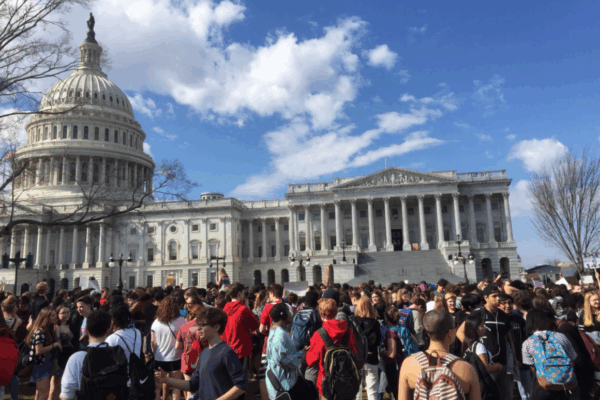In light of widespread reports of planned student walkouts as protests at public schools across the country, including in Virginia, it is important for school officials and students alike to keep in mind these important legal considerations:
- Students do not "shed their constitutional rights to freedom of speech or expression at the schoolhouse gate." The Supreme Court in Tinker v. Des Moines School District made clear that students and teachers have First Amendment rights, applied in light of the special characteristics of the school environment.
- The Supreme Court also said that a prohibition against expression of opinion, without any evidence that the rule is necessary to avoid substantial interference with school discipline or the rights of others, is not permissible under the First and Fourteenth Amendments. Whether a walk out, without more, amounts to a “material” and “substantial” disruption of school activities or interferes with other students’ rights is arguable. School officials who encourage community engagement and integration of extra- curricular activities as part of a well-rounded education should be especially careful not to define behavior by students who “peaceably assemble” or seek to petition the government for redress of grievances as behavior that, by definition, disrupts school activities rather than as behavior that demonstrates caring about or engagement in the community as often encouraged in school codes. School officials should not threaten discipline to discourage participation in specific expressive activities where there is no direct threat to a school or any students.
- Virginia law requires students to attend school. Students should be aware that adecision to absent oneself from school without a “valid excuse” may be defined by school officials as truancy and can lead to discipline regardless of the reason. The issue is what constitutes a “valid excuse.”
- School officials must be careful to ensure that all students who choose to participate in a walk out are treated the same, regardless of the school they attend or who they are, and that any discipline imposed on any student participating in a walk out is not different from that imposed on other students who intentionally absent themselves from school in violation of school rules for other reasons.
- Students should be careful to understand and willing to accept the consequences of deliberately leaving school without following the school rules. One hopes that they have read Henry David Thoreau’s essay “On Civil Disobedience” or John Rawls’ “A Theory of Justice” or Kimberly Brownlee’s entry, "Civil Disobedience,” The Stanford Encyclopedia of Philosophy (Winter 2016 Edition), Edward N. Zalta (ed.)

